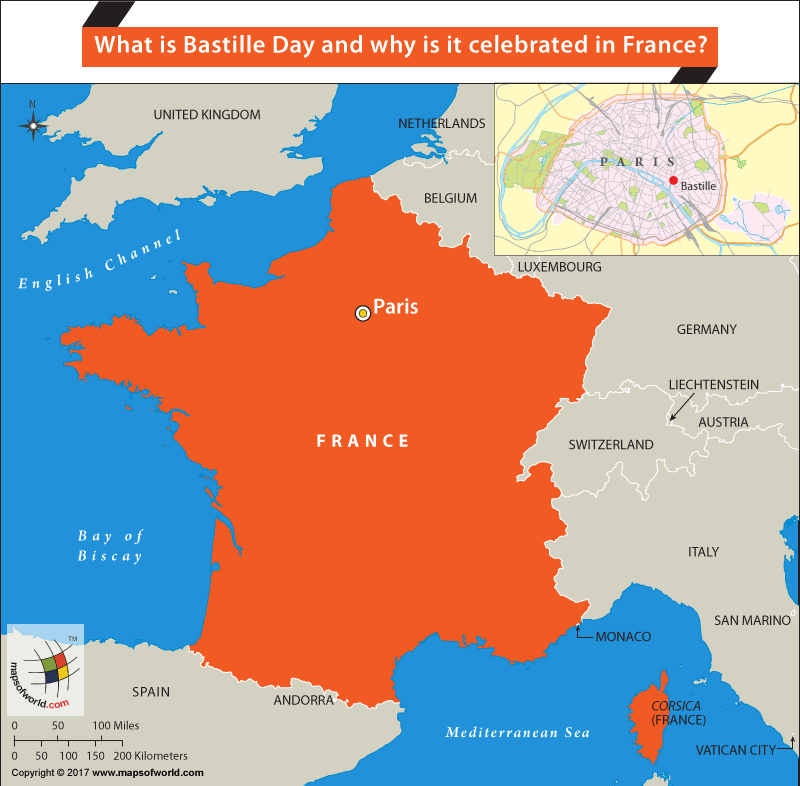

Map of France with an Inset of Paris City locating Bastille
The ‘Storming of the Bastille’ is not merely a significant incident in the history of France, it is a symbol of liberty and power of the masses. The day marks the start of the French Revolution – a cohesive protest against an oppressive and apathetic regime, that inspired people across the world to rise up for their rights. The storming of the Bastille prison on July 14, 1789, is commemorated as “Bastille Day” on same day, each year in France.
Before May 1789, the political and legislative decisions of France were dominated by the three estates – the clergy (First Estate), the nobility (Second Estate), and the commoners (Third Estate), summoned under the rule of Louis XVI. The monarchy had become out of touch and tyrannical, and the deepening economic crisis had turned into a political crisis. The Third Estate voiced demands for a valid constitution and for equal rights for all and invited the other two estates to join them and form the National Constituent Assembly (Assemblée Nationale Constituante), which was against the wishes of the King.
It was this time, that the king dismissed the minister of finance, Jacques Necker, who was sympathetic towards the Third Estate. Parisians feared that the King and the royalists would make more controversial and inimical decisions and would soon dissolve the National Constitutional Assembly or hurt its members.
Thus, they stormed the Bastille, a fortress prison where political dissenters were held, often arbitrarily without charges or trial. This came as the ultimate sign of rebellion as the prison was also a bastion that stocked ammunition and gunpowder, which was then seized by the Parisians and used to stage the French Revolution.
The people of Paris were soon joined by the French Guards (Gardes Françaises) who turned mutinous. The day turned bloody as many people were killed in the violence. The incident remains a turning point in French history. Soon after, the Declaration of the Rights of Man and of the Citizen (Déclaration des Droits de l’Homme et du Citoyen) was proclaimed and the French Revolution resulted in the abolition of monarchy and the establishment of the first republic.
The day was declared as French national holiday in 1880, and has been celebrated ever since, except during World War II. On the morning of July 14 ever year, largest regular military parade is held down the Champs-Élysées in Paris. Sale of delicious French pastries and large firework displays at nighttime are the highlights of celebration as well.
Related Links:
Related Map and Info:
The Republic of Madagascar is an island country located in the Indian Ocean, off the…
The Euro is the official currency of the European Union. It is, however, not incumbent…
There are many countries or regions that are partially recognized by the UN, have disputes…
The Alaska Statehood Act was signed into law by President Dwight D. Eisenhower in 1958,…
The name Persia may, however, only be used to refer to Iran in some contexts.…
Hawaii is an Island State in the US. It is one of the 50 states…